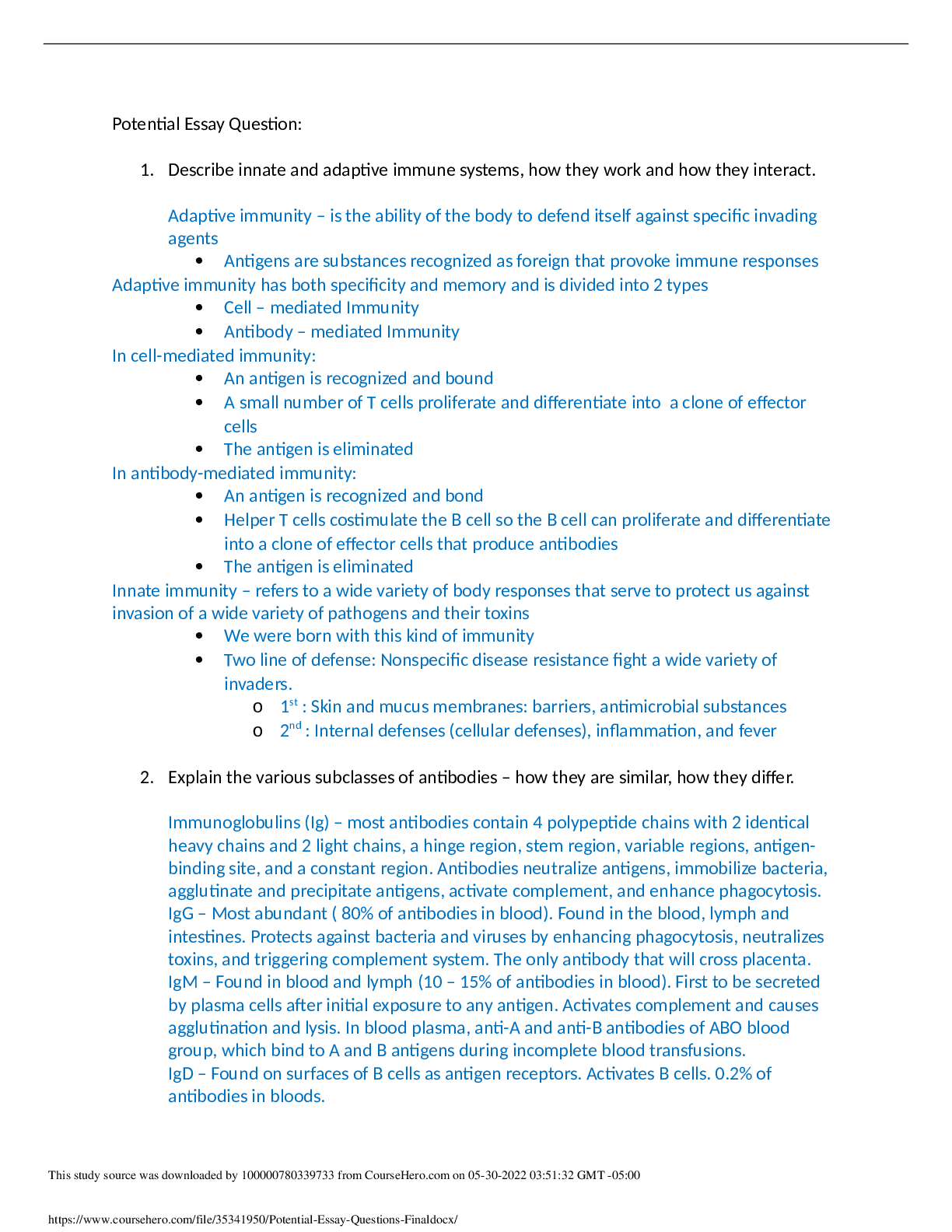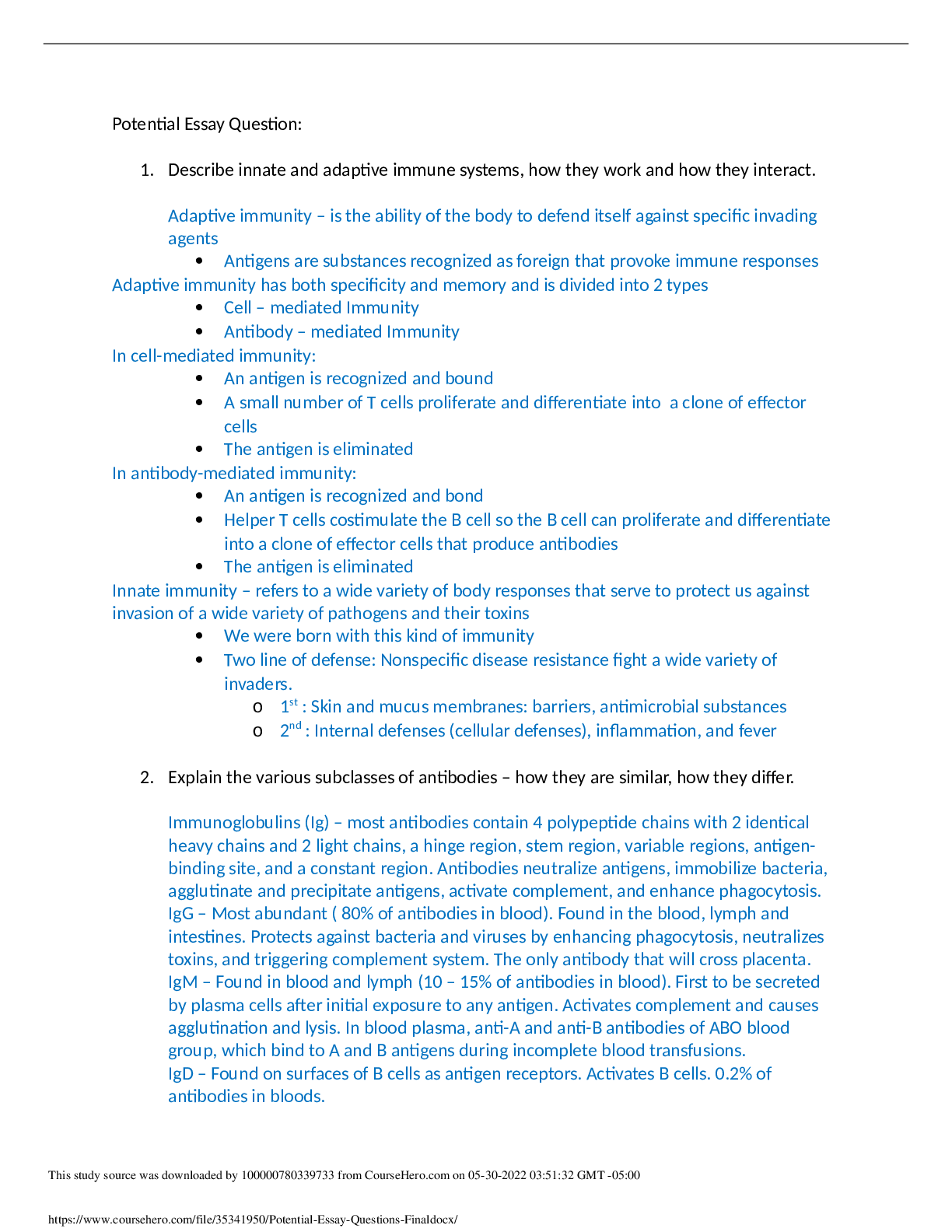Potential Essay Question
Course
Education
Subject
Chemistry
Category
Questions and Answers
Pages
8
Uploaded By
ATIPROS
Preview 2 out of 8 Pages


Download all 8 pages for $ 6.00
Reviews (0)
$6.00
